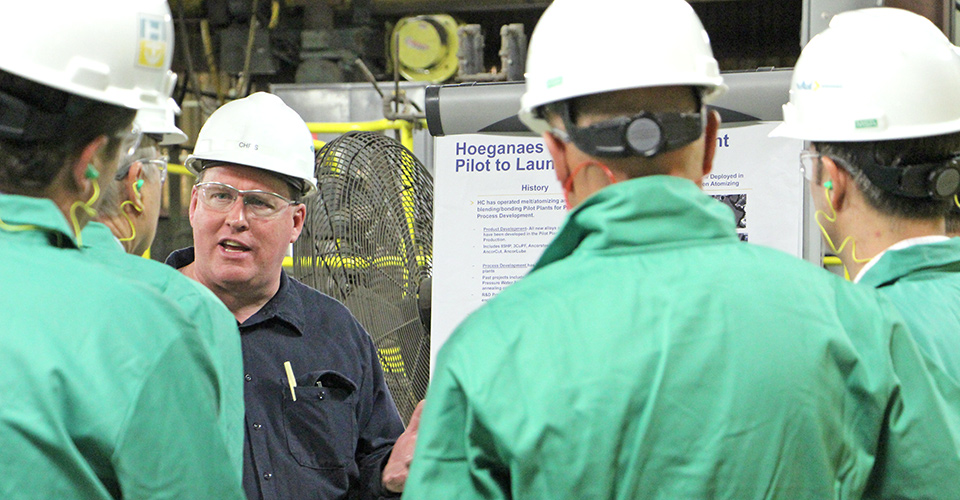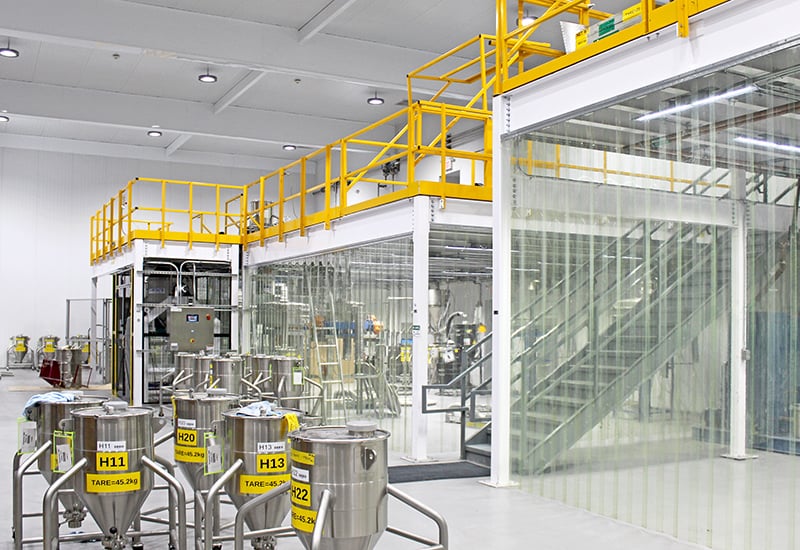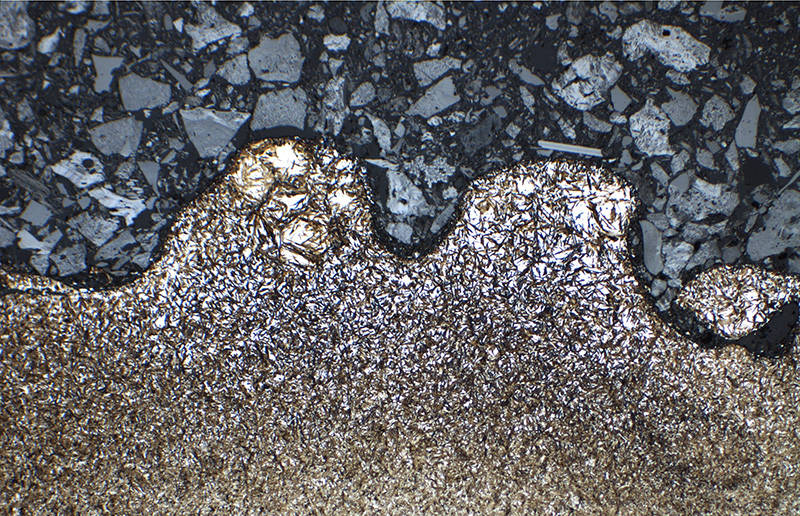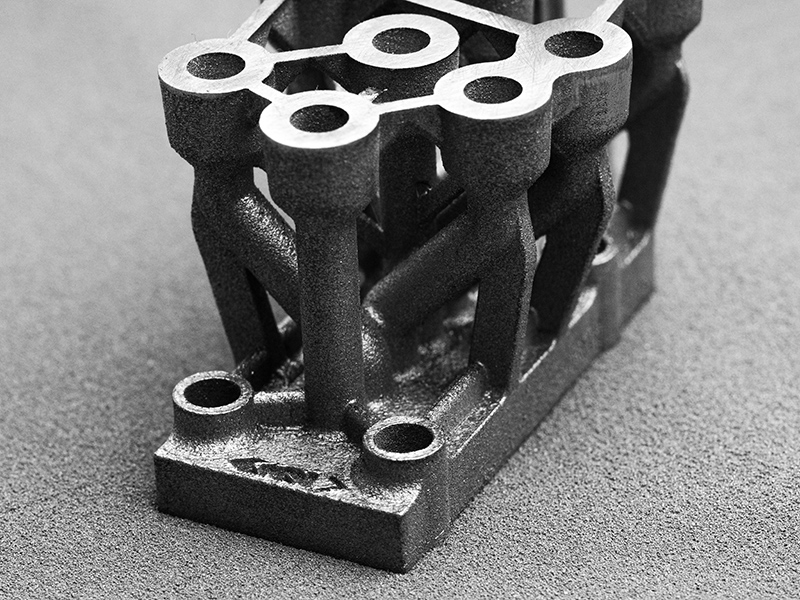Read time: 4 mins
Date posted: May 2019
Theme: Additive Manufacturing, Material Innovations
How advanced digital materials push the industrialization of Additive Manufacturing (Part 01)
In our current digital age, opportunities appear and mature at an ever-increasing rate. GKN Additive learned to accelerate innovation in not only technology, but also in processes and organizational design. We met with Guido Degen, President of Additive Manufacturing at GKN Powder Metallurgy, to understand how GKN Additive is moving the agenda from prototyping to serial production.
Our key learning: Material is the driving force that pushes the boundaries in additive manufacturing!
GKN Additive and GKN Hoeganaes have recently announced the merge of their material expertise into "GKN Additive Materials" - a sub-brand of GKN Additive, fully dedicated to advanced AM powders. GKN Additive's current process and parts business is now summarized within the sub-brand GKN Additive Components. Guido, what does this enhanced business model mean for GKN Additive's customers?
Degen: By combining the materials expertise from GKN Hoeganaes with our additive component capabilities, we are accelerating the industrialization of the full process chain from materials to parts to deliver certified and robust parts for serial applications.
We strongly believe that a digital twin will enable serial production in additive manufacturing. This not only helps to save time by having a robust process prediction; it also means a better understanding of the process, which is a great starting point for further cost reduction.
We have already digitized a huge portion of our process in laser manufacturing. Now we want to predict the outcome of this process by having a full digital description of the material and the process. By having this base, we will first generate big data and then gain a deep understanding from the outcome. As a digital company, this is truly embedded in our DNA.
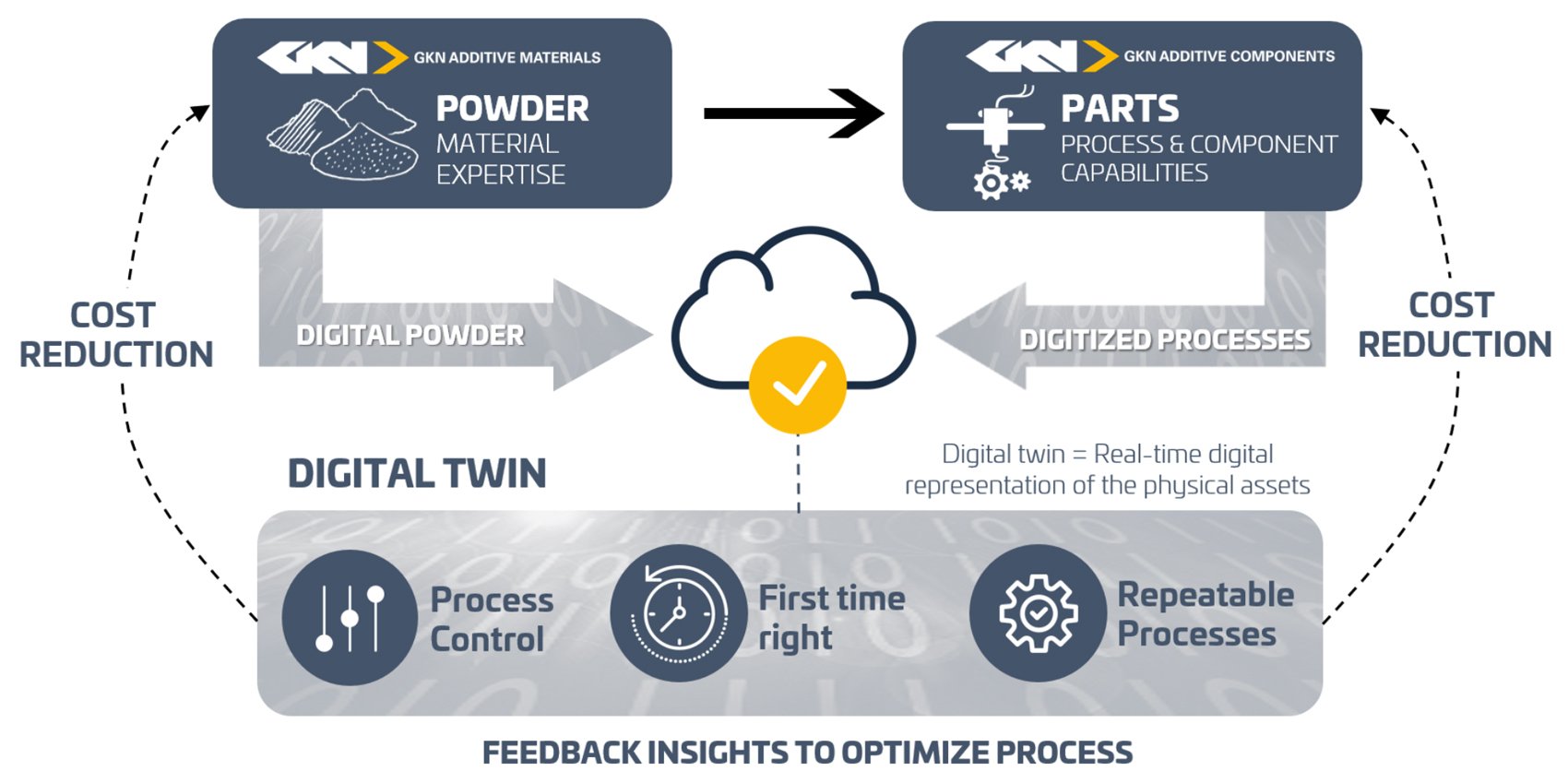
What kind of customers will benefit from our new sub brand, GKN Additive Materials?
Degen: All customers will benefit from this close collaboration. The whole market lacks new, cutting-edge materials. The materials everyone is using today are readily available, but they were not explicitly developed for additive processes. Most of the materials, like Titanium alloys or super alloys have been developed for aerospace or medical applications.
But in automotive, where our heritage is, we use steels. Therefore, we will develop steels for high performance production in automotive in a closed loop system based on customer demands.
Our unique advantage as GKN Additive is having powder and parts under one roof. What is the main advantage that this brings to our customers?
Degen: For our customers the difference is clearly the application focused development and the reduction of lead times. Secondly, we develop proven materials that we use internally, but we also offer them to the external market. Here we are copying the success formula of our current business model between GKN Sinter Metals and GKN Hoeganaes.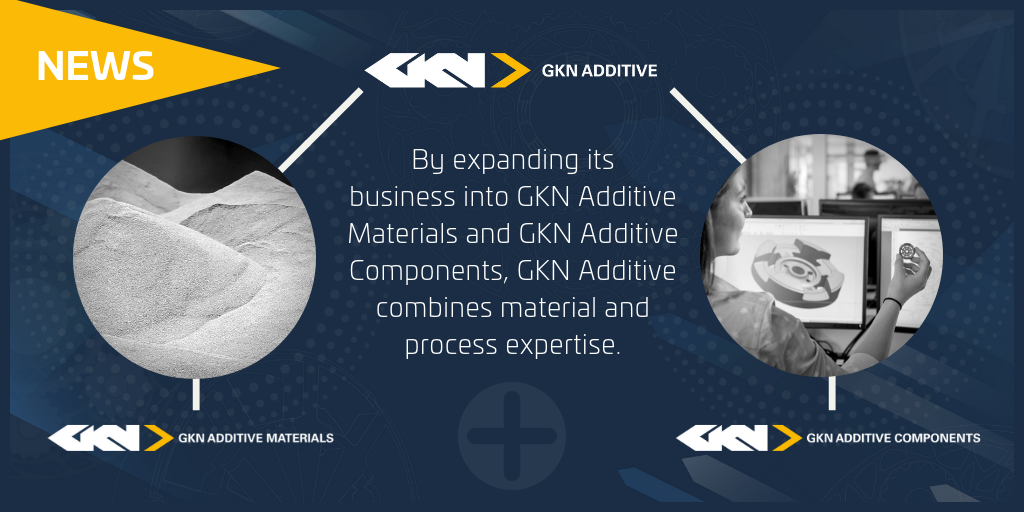
GKN Additive Materials benefits from the metal powder expertise and long-standing history of GKN Hoeganaes. Why is this such a highly relevant success factor?
Degen: If we compare just data and facts, the whole additive powder market is about 2.000t today. We are operating the largest powder atomizing plant in the world, where we produce 300.000t of steel already.
Additive is absolutely the future - it shows by far higher growth rates than our conventional business. And our core strength is scaling production. We will transfer our technology to scale powder manufacturing towards additive, because the demand and the market will grow.
The most critical drivers in this game are robust quality and cost. We are not there yet, but with our ideas and our concepts we are sure that we will have a major impact on the market.
All our production plants are embedded in Industry 4.0 – as well as our material production. GKN Additive Materials has established the term advanced digital powders, can you elaborate on the meaning of this concept?
Degen: Advanced digital powders are specialized for precision and function. And the idea and concept behind this is to capture all the digital information to have a proper description of the material properties.
In our world class R&D and manufacturing center in Cinnaminson (NJ), we have access to all relevant capabilities in production technology. We have a powder research laboratory with various capabilities including metallography, powder morphology and so on. By capturing all this information, we can describe a digital twin of the material as well. And by combining this with our other processes, we hope to learn much more about the outcome in the process.
And that’s why we call it advanced digital powder, because we know that it is not possible to have a 100 percent repeatable materials production. This is just not possible due to physical boundaries. But by having a proper description we can adjust automatically laser parameters later to guarantee a 100 percent robust output.
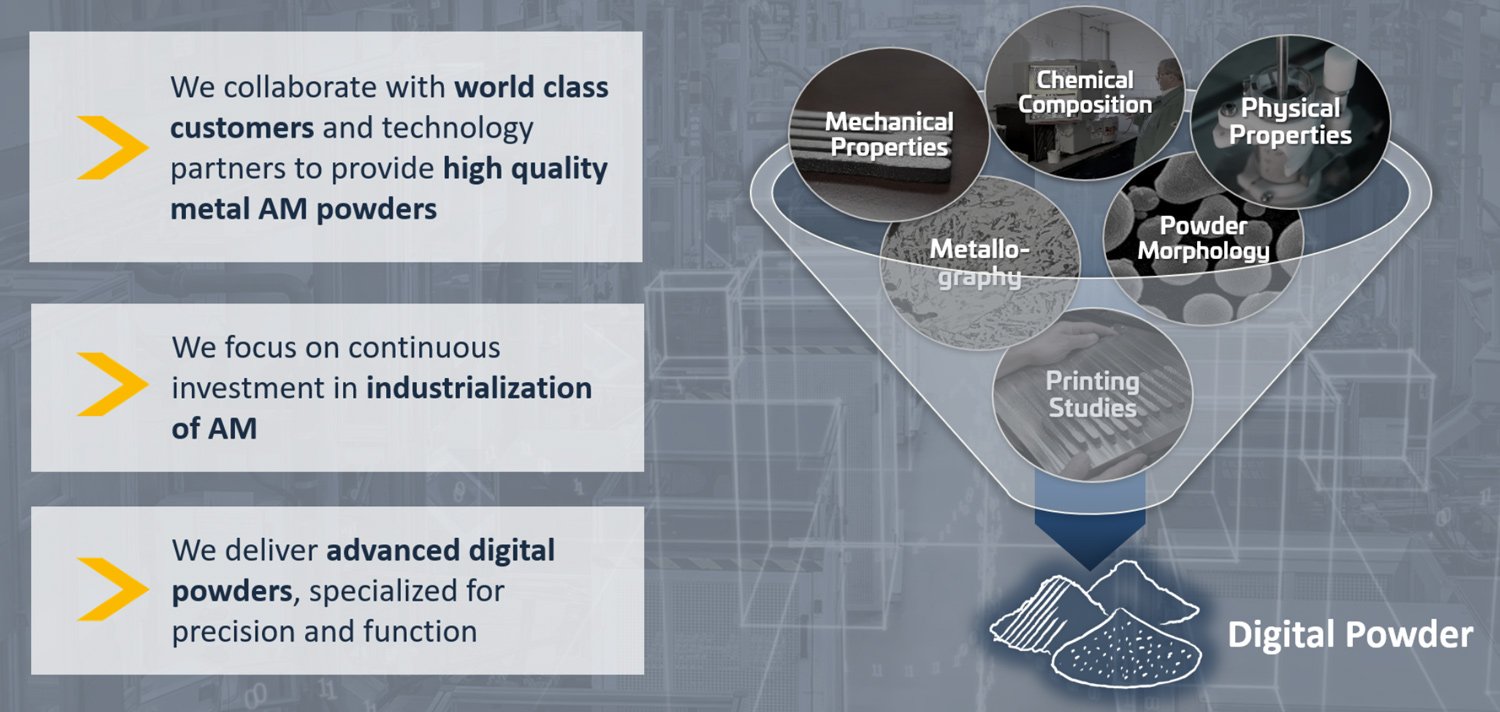
Why do our customers need digital powders?
Degen: Digital powders enable our customers to have the expected outcome in the shortest possible time! By having all this knowledge, we can deliver all data to our customers, so they can adjust their processes.
Metal 3D Printing is a disruptive force that in future could redefine traditional manufacturing and supply chain strategies. What are in your opinion realistic scenarios of how metal 3D printing will disrupt global manufacturing in 5 to 10 years?
Degen: Additive Manufacturing absolutely has the disruptive potential, there are three key elements that will help to unleash it - additive thinking, robust and accessible processes and cost.
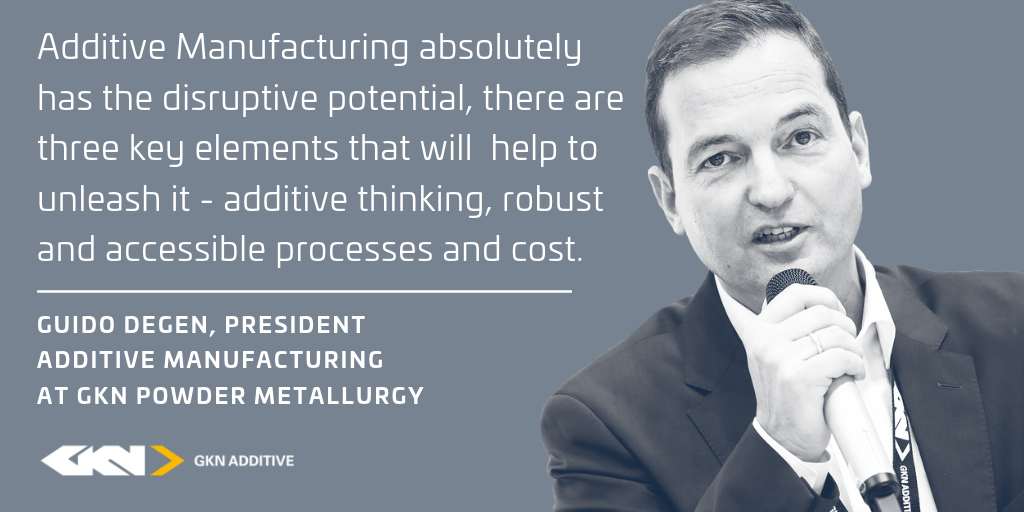
Today the boundaries are mainly driven by the 3D printing knowledge and the additive thinking in all the engineer’s brains. I believe the whole world is not moving fast enough to build 3D knowledge in schools and universities. We want to change that and already do a lot with global training sessions and supporting our customers in our centers, where they are always welcome.
On cost and processes we drive our agenda with our top partners HP and EOS forward to bring AM to the serial market. We see this as our main goal – opening the market with cost competitive robust processes. By combining all 3 elements we are ready to open the market.
Thank you for the interview, Guido.
This is the first part of the interview series on how advanced digital materials push the industrialization of additive manufacturing. In the second part of our series we talk with Chris Shade, Director Additive Materials at GKN Powder Metallurgy to discuss the powder perspective.

